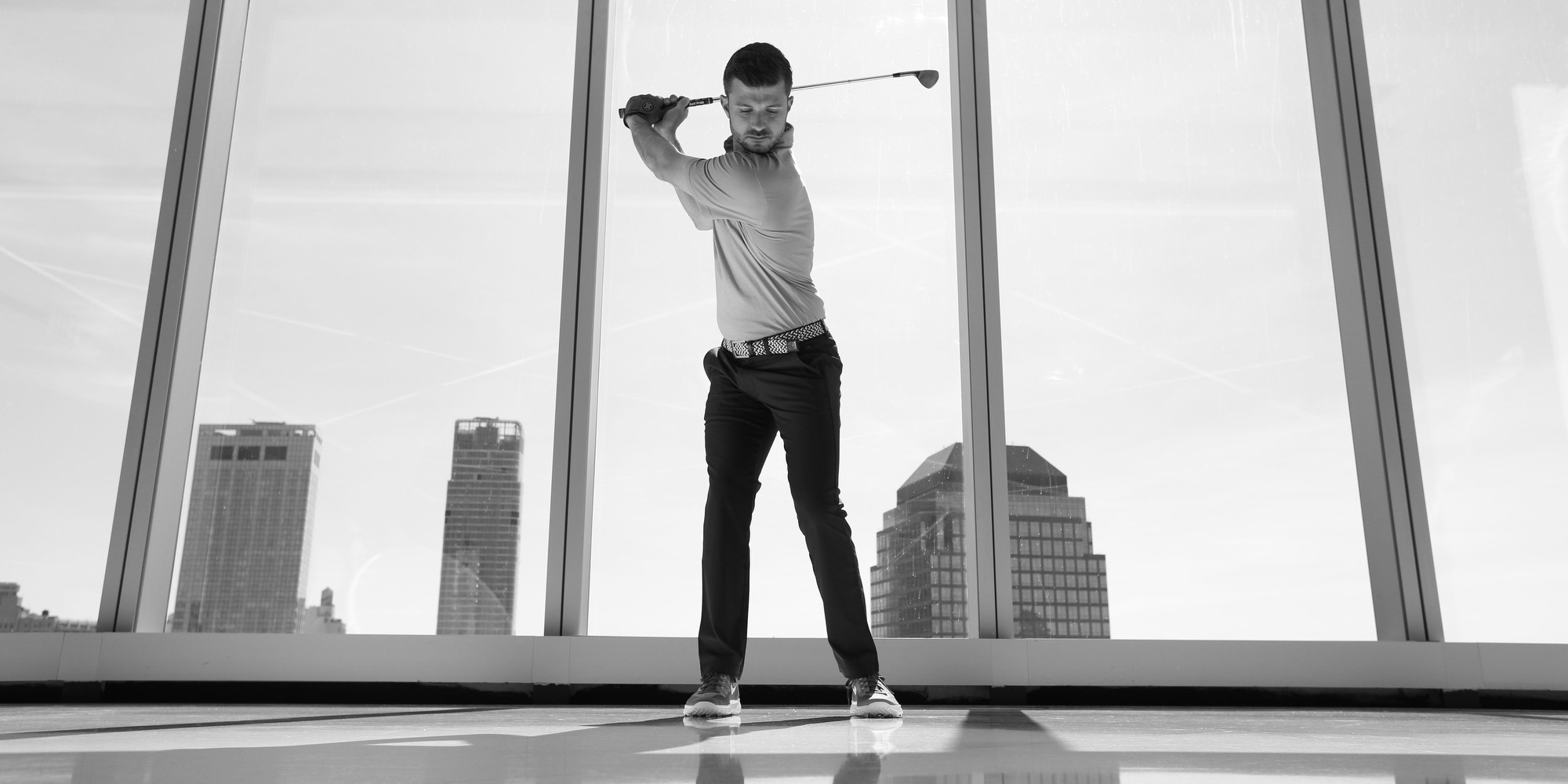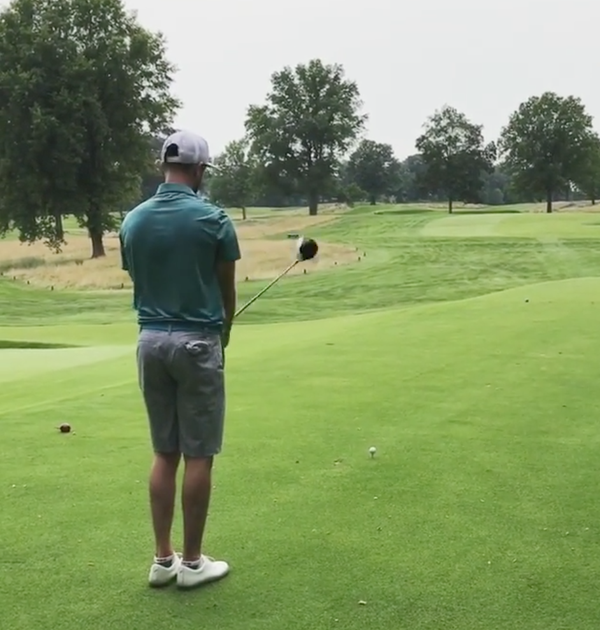I’m methodical by nature.
I don’t try to be overly-precise or technical, it’s just how my brain and body default.
But I’ve noticed I perform best when put in situations where I have to react quickly, without giving myself time to think, “How do I do this?”
Part of this comes from training as a goalkeeper in soccer as a kid: I had to have the fastest reflexes I could.
It didn’t allow time to think.
But on a golf course, we spend (maybe) a few minutes out of the 5 hours actually “performing” or executing a shot.
And in an effort to getting back to shooting lower scores, I’ve spent a bulk of the last two years working on technique and mechanics.
What’s happened to my routine, however, is that it’s moved too slow.
The tempo from behind the ball, to visualizing, to lining up, to looking, to hitting, was taking roughly 40 seconds.
I wouldn’t have noticed this on my own, though.
Weirdly enough, all those methodical rituals felt natural.
I recently visited Joe Compitello out at Plainfield Country Club to seek his insight as to why I was still struggling, especially off the tee.
After a quick range session we decided to play a few holes.
I was striping it on the range but promised him it’s just not the same on the course.
Low and behold, the first three tee balls went about 40 yards off line.
We kept going and I pulled out my favorite long club on No. 4: my 3-wood.
The 4th hole at Plainfield begs for a tiny draw up the center and over a few steep fairway bunkers on the left.
Without hesitation, I hit the first fairway of the day.
“You took about half the time to hit that,” Joe told me.
“Really?” I replied, “I felt like I took the same amount of time over the ball.”
“No, I mean from when you teed it up to when you hit it. The whole thing. You didn’t stand behind it and try to find the perfect line. You cut that way down.”
And just like that, the lightbulb went off.
From there on, I was aware of my routine timing.
I was aware of my self talk, too: There was less of it.
I realized that the best way for me to perform was to play golf like an athlete, not a scientist.
I had to let all the technical training and mechanical work I’ve put in start to flourish by letting go of trying to force it while I played.
My body relaxed more, but I felt an alpha intensity of “attack this hole” on the tee versus the more tentative “I hope this hits the fairway because I honestly don’t know if I know how to do this anymore” sensation I had been slowing down to try to prevent.
I felt a weird, tingly sensation in my brain and body that triggered a renowned sense of confidence.
It felt relentless.
I felt fearless.
I felt powerful.
By slowing down, I was doubting myself more.
While I don’t know if this approach will work for everyone, what I do think is that we all have a personal rhythm and tempo that works best for each of us.
It just might not be the pace that feels right.
It just might be faster or slower than your “norm.”
The same can be said off the course.
When my rhythm gets too slow and I fall into too technical of a space, I doubt myself and can’t seem to pull the trigger and face my bigger fears.
I get lazy.
I lose discipline by trying to force “how to” rather than “just do.”
Whether it’s opening my mouth with an idea in a meeting, or talking to a girl I’m attracted to, or giving constructive feedback, when I slow down too much, my fear grows.
We should be mindful of what we say and how we act, but we shouldn’t procrastinate or over-think.
If you’re struggling with something, I would recommend changing how fast or slow you approach it, rather than focus on whether you’re doing it “right” or “wrong.”
Don’t necessarily change how fast or slow you execute, just move with a positive, attack-minded approach.
Let me know what happens.



